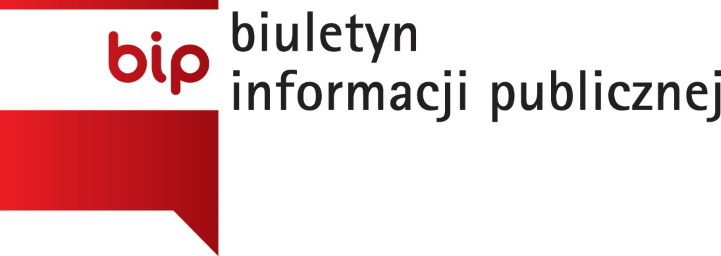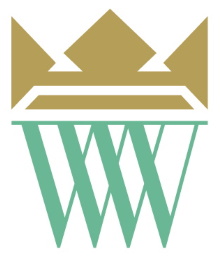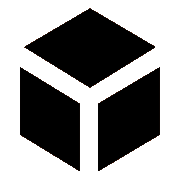Ethical Rules
PRINCIPLES OF PUBLICATION ETHICS:
The Board of Editors and the Editorial Committee of ‘Studia Wilanowskie’ diligently observe the highest standards of ethics and good conduct applicable in scholarship and in publication practice, taking care to prevent all cases of misconduct and authorial negligence. Publication policy approved by the Board of Editors and the Editorial Committee is intended to guarantee transparency of the publishing process.
PRINCIPLES OF ETHICS AS REGARDS THE AUTHORS:
- By sending his/her work to the Editorial Committee, the author agrees to its undergoing the process of reviewing and its publication in the periodical, by which he/she does not infringe the copyrights of other persons.
- The work should include full information regarding the research financing source.
- The author submits an original work, within the strictly defined maximum length, which cannot in any part be plagiarized or include false or dishonestly presented contents. All passages cited from other authors must be clearly indicated with appropriate references.
- The work should contain references to all materials used therein.
- The author must strive to avoid misconduct concerning “ghostwriting” (i.e. not mentioning persons who contributed to the emergence of the text) and “guest authorship” (i.e. mentioning as authors persons whose contribution to the emergence of the text was negligible or nonexistent). The works should contain (e.g. in the form of acknowledgements) the names of all persons who contributed to the emergence of the publication and are not mentioned as the authors.
- If a similar material was published in another periodical or presented during a conference, this must be indicated when submitting the work. Submitting such text without informing the Editorial Committee is unethical and will not be condoned.
- Authors reserve the right to present their work published in ‘Studia Wilanowskie’ at all types of conferences and symposiums.
- If at any stage of the work’s preparation for printing the author discovers an error, he/she is obliged to inform the Editorial Committee so that the error can be corrected, the text withdrawn or an appropriate erratum included.
- The author is obliged to address the reviewer’s remarks or validate his/her decision to disregard them.
- After the work is accepted for publication, it undergoes scholarly and linguistic edition, and the abstract provided by the author is translated into English.
- The works are published after the authors agree to transfer the copyrights to the Museum of King Jan III’s Palace at Wilanów (Publisher).
- The Editorial Committee of ‘Studia Wilanowskie’ announces that it accepts the texts for publication free of charge, incurring all the costs of their edition and translation, as well as the iconographic material fees.
- The author’s non-compliance with the above regulations is considered unethical.
PRINCIPLES OF ETHICS AS REGARDS THE EDITORAL COMMITTEE:
- The Editorial Committee of ‘Studia Wilanowskie’ initially qualifies the material submitted for publication and decides on its acceptance for review or rejection. In either case the author is informed about the decision.
- The Editorial Committee informs all its members regarding the submitted text and appoints two reviewers.
- The decision regarding its acceptance for publication depends solely on the assessment of the text’s academic value, originality, conformity with the profile of current issue of the periodical, and in the favourable opinions of the reviewers and the Editorial Committee.
- Communications, biographic notes and conference reports are not reviewed.
- Having received the text from the author, the Editorial Committee informs him/her as to the regulations on personal data processing in force at the Publishers by sending the document: Information concerning personal data processing.
- In choosing the reviewer, the Editorial Committee takes care to eliminate the possibility of a broadly understood conflict of interests and to choose the independent reviewer from outside the author’s academic institution.
- The Editorial Committee safeguards the anonymity of reviewers and authors, also in reference to authors recruited from the employees of the Museum, the Board of Editors and the Editorial Committee.
- The Editorial Committee observes the principle of the “double-blind review process” (the reviewers and the authors are mutually unaware of their identities).
- In the cases involving copyright infringement and plagiarism, the Editorial Committee observes the standard procedures.
- All the remarks of the reviewer are passed to the author by the Editorial Committee in the format of an anonymous review form.
- If the Editorial Committee receives conflicting reviews while considering the text of importance to the periodical’s profile, it may seek the opinion of a third reviewer.
- A condition of the text’s acceptance for printing is that it obtains two favourable reviews from independent reviewers.
- After the Editorial Committee decides on the text’s acceptance for printing, the Publisher signs an appropriate contract with the author.
- The Editorial Committee cannot use the rejected texts without the permission of the author.
PRINCIPLES OF ETHICS AS REGARDS THE REVIEWERS (following the communication of the Ministry of Science and Higher Education dated 29 May 2013 on the criteria and process of assessing scholarly periodicals):
- If a broadly understood conflict of interests occurs, the reviewer should not undertake to review the given text.
- While reviewing the text, the reviewers must remain objective, treat the text as confidential, and observe the deadlines.
- The review is in the blank form format (available on the periodical’s webpage) to be filled in by the reviewer.
- The reviewers should provide a basis for their remarks and assessment of the text, especially when this assessment is unfavourable.
- The reviewers cannot use the reviewed texts for their own purpose, including their storage and copying, without the author’s permission.
- The reviews are confidential and unpaid.
PRINCIPLES OF ETHICS IN THE PUBLICATION PROCESS:
- The Editorial Committee takes care that the entire publication process conforms to standard procedures.
- The Editorial Committee is responsible for the security of all materials submitted for publication at all stages of the publication process, for the preservation of confidentiality, and for personal data protection.
- The Editorial Committee should inform the Publisher, and the appropriate institutions or organizations, of every attempt to infringe any principles of good conduct, academic ethics or good practices at any stage of the publication process.
- Unethical conduct reported to the Editorial Committee must be corroborated by evidence permitting to open clarification proceedings or an investigation.
- The Editorial Committee should clarify all the reported or noticed irregularities with all diligence.
Contact:
Phone: + 48 22 5442726
studiawilanowskie@muzeum-wilanow.pl
Publisher:
The Museum of King Jan III’s Palace at Wilanów
Stanisława Kostki Potockiego 10/16
02-958 Warszawa
Poland














